Swissôtel Tallinn (6th Floor)
Ph.D. Ülle Madise, Chancellor of Justice in Estonia
Raivo Aeg, Minister of Justice of the Republic of Estonia
Vootele Hansen, Institute of Human Rights Chairman of the Management Board
Universality, as one of the most important properties of human rights, is one of the most controversial topics in human rights discourse. According to the classical approach, equal human rights must apply to all people, irrespective of where the person lives. But there are those, who have called this principle into question, claiming that it is a concept based on Western values, which cannot be applied outside Western countries. Proponents of such a position do not see global human rights as ideas carrying a higher goal, but rather as leverage for neocolonialism in developing countries.
The confrontation between ideas of universality and cultural relativism has led to a deadlock, which may start to hinder the promotion of human rights. This conflict has no clear and singular solutions, but resolving it would help better protect human rights all over the world. Is the universality of human rights even possible or is it rather utopian? Do we need human rights, based on unequivocal values, which are the same in different communities and what for? Let us discuss it with experts, whose work revolves around these issues.
Hille Hanso, journalist
Rouba Mhaissen, economist and activist
Ashur Sargon Eskrya, President of the Assyrian Aid Society, AAS Iraq Department
Peeter Selg, Professor at Tallinn University
Robert Ilatov, Advisor to Prime Minister of Israel Benjamin Netanyahu
Vsevolod Chaplin, archpriest
A clean and healthy environment is an integral part of human rights, because our environment is related to our right to life, health and a decent standard of living. Climate change has always been a part of the history of the Earth. Often, it has considerably changed the natural environment and served as the reason a number of species have become extinct. Current climate change, which for the first time in history, is caused by humans to such a large extent, is a great threat both to nature and human society (indigenous peoples who subsist on nature). The predicted climate change has a negative impact on billions of people and ecosystems, often causing unexpected events – among other things, extreme weather conditions and natural disasters, floods, heat waves, desertification and water shortage. These phenomena threaten the common understanding of human rights both directly and indirectly, including the right to life, water, food, health, abode, culture and development. Also, the changes taking place trigger forced migration, because many areas are becoming uninhabitable. But how to cope with climate change? It is not enough to use paper or textile bags instead of plastic bags and reed or metal straws instead of plastic ones! How should the Khanty, Dolgans and many others, for example nomadic tribes, live, who subsist on reindeer husbandry? What is to cost of climate neutrality for countries and how is climate policy related to security? Do all innovative solutions really have a smaller ecological footprint or are someone`s business interests at play? There is no single answer and simple solutions to these questions, but we must admit that coping with climate change is one of the greatest challenges of the current era.
Toomas Tiivel, biologist and diplomat
Kersti Kaljulaid, President of the Republic of Estonia
Peter Veit, an environment and human rights expert
Bibiana García, Green Economy and Sustainable Business Specialist, adelphi
Karolis Žibas, Regional Program/Integration Officer, UNHCR Regional Representation for Northern Europe
Panu Pihkala, University of Helsinki Adjunct Professor of Environmental Theology in the Faculty of Theology
Siim Kallas, Vice-President of the Riigikogu
The exponential technological development over the past century has made people`s lives infinitely simpler, but has brought on ethical problems. Advances have taken us from the first cars to robots who think independently. Development of artificial intelligence is changing the classical understanding of human rights and is creating more and more questions. Which rights should apply to robots who resemble people? How to guarantee protection of human rights in an increasingly powerful digital world?
In 2017, Saudi Arabia awarded citizenship to robot Sophia; in China, a social credit system is being developed, which is based on analysing big data and encompasses all citizens. The ratio with robots in no longer just a humorous empty phrase, but has become completely achievable nowadays. If a few decades ago, such ideas would have seemed utopian, then now, this has become the new reality for humanity. However this means that human rights cannot remain stuck in pacts written down in the 1960s, and these too must evolve alongside technological advances.
Urve Eslas, information manipulation researcher
Andy Carvin, Senior Fellow at the Atlantic Council’s Digital Forensic Research Lab
David Patrikarakos, British journalist and author
Josh Lyons, Geospatial Analysis Programme Director, Human Rights Watch
Ph.D. Anna-Maria Osula, Senior Policy Officer, Guardtime
Ph.D. Peter Fussey, Researcher, Expert of Technology and Human Rights
The goal of populists is to “represent all citizens“. Such an approach to politics creates an erroneous understanding of a homogenous population. Politicians who use methods of populism and demagogy can already be seen leading a number of large countries. But how do populism and human rights relate? 21.century populism can be considered one of the greatest threats to human rights and universal values. Often, populists are critical of human rights, claiming this is an artificial construct, and following them is not in the best interests of the people. They also try to induce conflict between human rights and democracy – stating that if a large part of the population does not support certain human rights (or expanding the scope of protection of human rights), then these rights should not have legitimacy.
But populism and demagogy are not only used for opposing human rights, these methods can also be found in the human rights discourse itself. Inevitably, human rights often fall victim to political conflicts and they have been used to achieve personal or national objectives. Frequently, populists are opposed to certain human rights, leaving the impression that some rights supersede others. They may claim that individual human rights must be sacrificed to collective welfare or the contrary, but in reality, these are two sides of the same coin, which do not conflict. Therefore, states and international organisations have to work harder to ensure that human rights discourse remains free of the evils of populism.
Ph.D. Ülle Madise, Chancellor of Justice in Estonia
Ph.D. Koldo Casla, Expert on Economic and Social Rights, Just Fair Policy Director
Ph.D. Santiago Zabala, ICREA Research Professor, Philosopher
Peter C. Baker, Freelance journalist
Ph.D. Eva Piirimäe, Associate Professor at University of Tartu
The organiser reserves the right to make changes in the schedule and the presenters.
By invitation only.
-
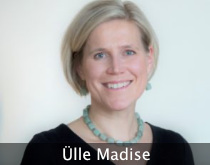 2019Parallel World Values and InterestsA clean environment and future of the globe, the possibility to preserve your privacy and option to disengage, which is necessary for the human psyche, are practical topics that apply to everyone.
2019Parallel World Values and InterestsA clean environment and future of the globe, the possibility to preserve your privacy and option to disengage, which is necessary for the human psyche, are practical topics that apply to everyone. -
 2018Conflicts of ValuesIn 2018, the panels discussed the topic of small countries as equal partners, whether human rights have a future, how much algorithms affect human rights and whether Russia has a future.
2018Conflicts of ValuesIn 2018, the panels discussed the topic of small countries as equal partners, whether human rights have a future, how much algorithms affect human rights and whether Russia has a future. -
 2017Are Human Rights in Freefall?The conference will address a number of today’s most important topics – terrorism, technological development, security, small states in a globalising world, culture and international cooperation – through a human rights perspective.
2017Are Human Rights in Freefall?The conference will address a number of today’s most important topics – terrorism, technological development, security, small states in a globalising world, culture and international cooperation – through a human rights perspective. -
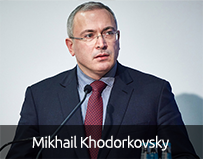 2016Black and White Values in a Polarizing WorldThe topics under discussion this year include a survey of public opinion on human rights among the Estonian citizens and foreigners living in Estonia, questions related to collective human rights and propaganda that have changed people’s understanding of basic rights.
2016Black and White Values in a Polarizing WorldThe topics under discussion this year include a survey of public opinion on human rights among the Estonian citizens and foreigners living in Estonia, questions related to collective human rights and propaganda that have changed people’s understanding of basic rights. -
 2015Human Rights in Changing TimesThe topics under discussion this year include case studies from the European Court of Human Rights, linguistic human rights, as well as the views of various generations of Russians today regarding their society.
2015Human Rights in Changing TimesThe topics under discussion this year include case studies from the European Court of Human Rights, linguistic human rights, as well as the views of various generations of Russians today regarding their society. -
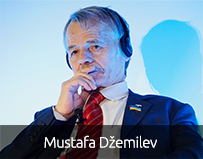 2014Dignity in the context of human rightsThis year the conference agenda included three keynotes and a panel discussion following each one: 1) guarantees under international law; 2) rights of native peoples; guarantees under international law; 3) the situation and future in Russia and Ukraine and human rights.
2014Dignity in the context of human rightsThis year the conference agenda included three keynotes and a panel discussion following each one: 1) guarantees under international law; 2) rights of native peoples; guarantees under international law; 3) the situation and future in Russia and Ukraine and human rights. -
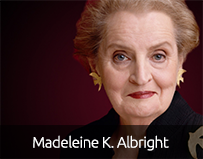 2013Human Rights and the Freedom to AssociationThis year’s annual conference, titled “Human Rights and the Freedom of Association” will analyse the global developments in human rights that have taken place in 2013.
2013Human Rights and the Freedom to AssociationThis year’s annual conference, titled “Human Rights and the Freedom of Association” will analyse the global developments in human rights that have taken place in 2013. -
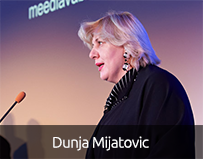 2012New Challenges of Human RightsOur conference examined human rights where the internet and the concept of security have altered dramatically our 20th century understanding of the core issues of human rights.
2012New Challenges of Human RightsOur conference examined human rights where the internet and the concept of security have altered dramatically our 20th century understanding of the core issues of human rights. -
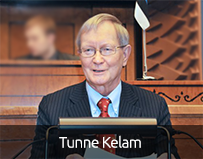 2011Dedicated to the 20th anniversary of restoration of independence of Estonia
2011Dedicated to the 20th anniversary of restoration of independence of Estonia

